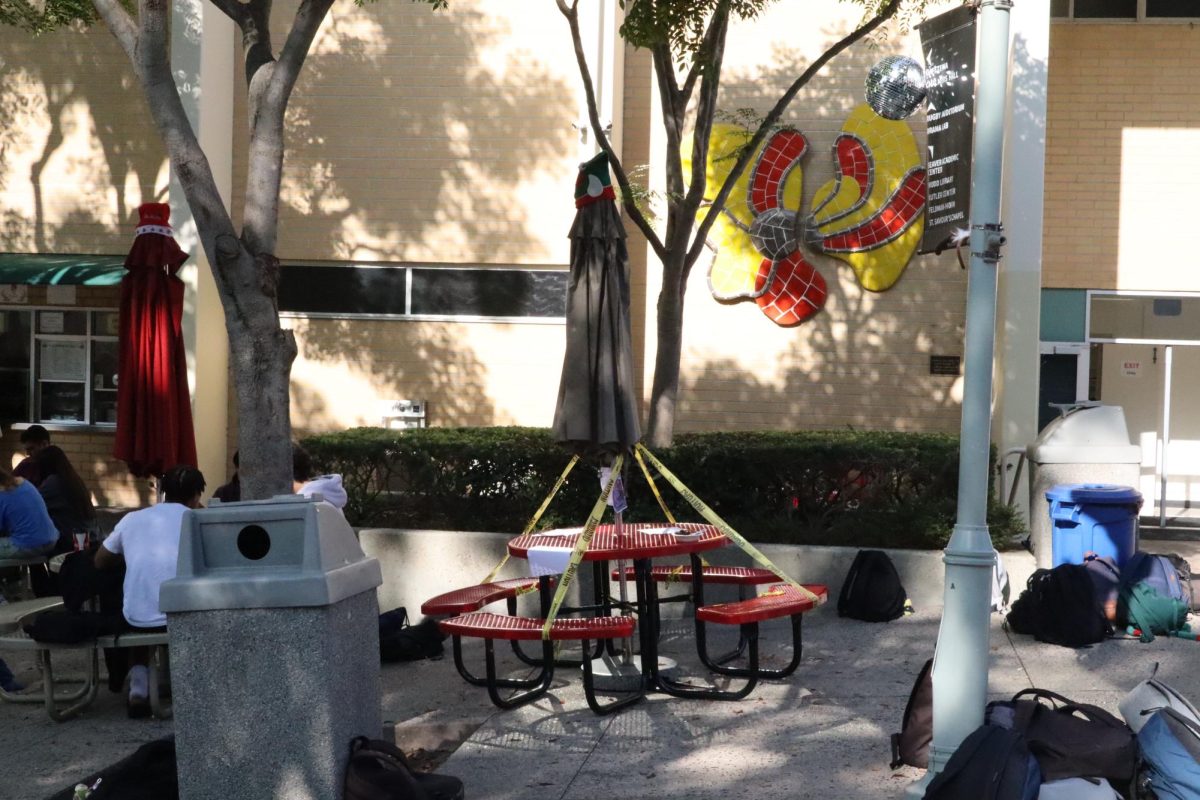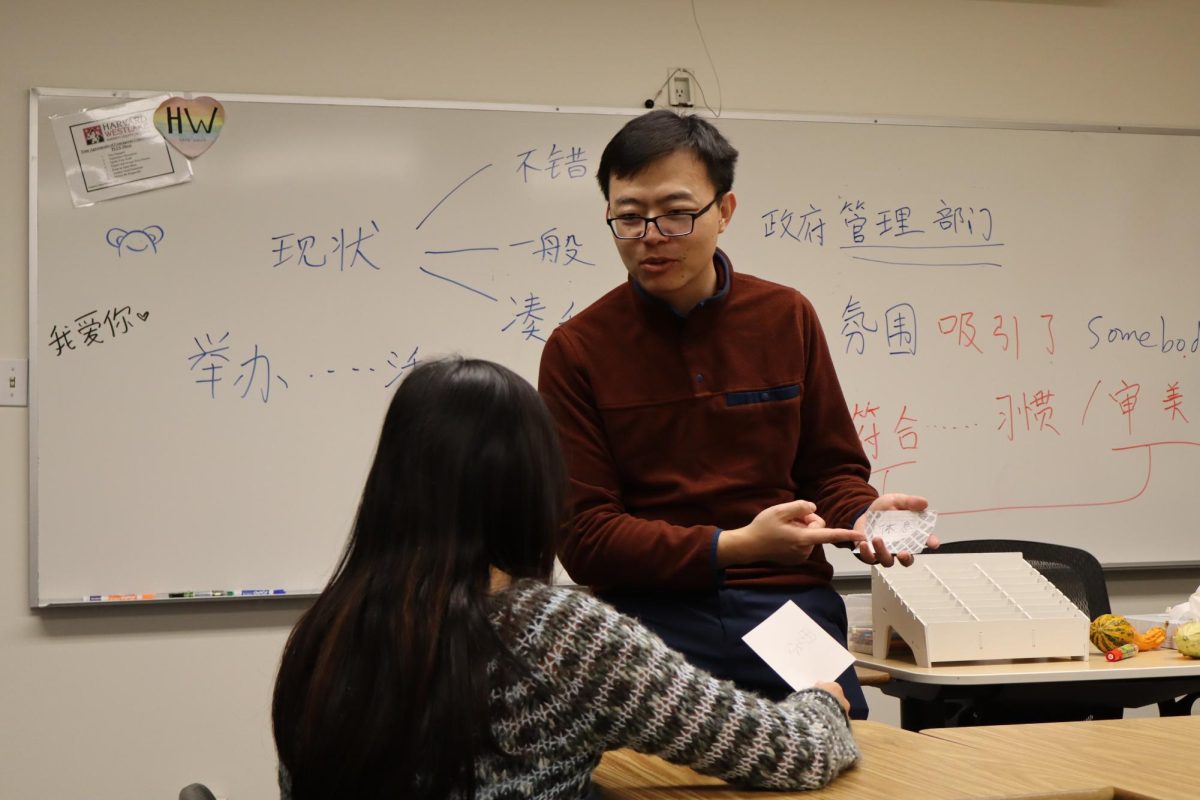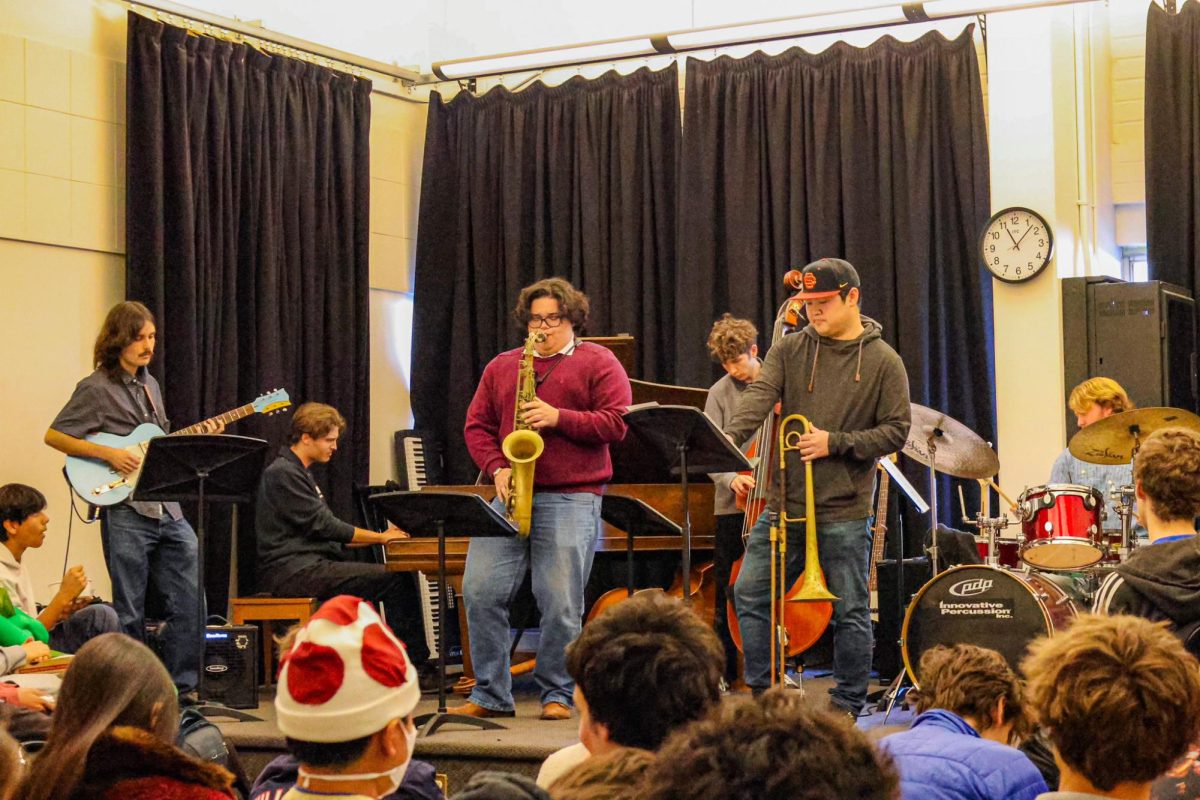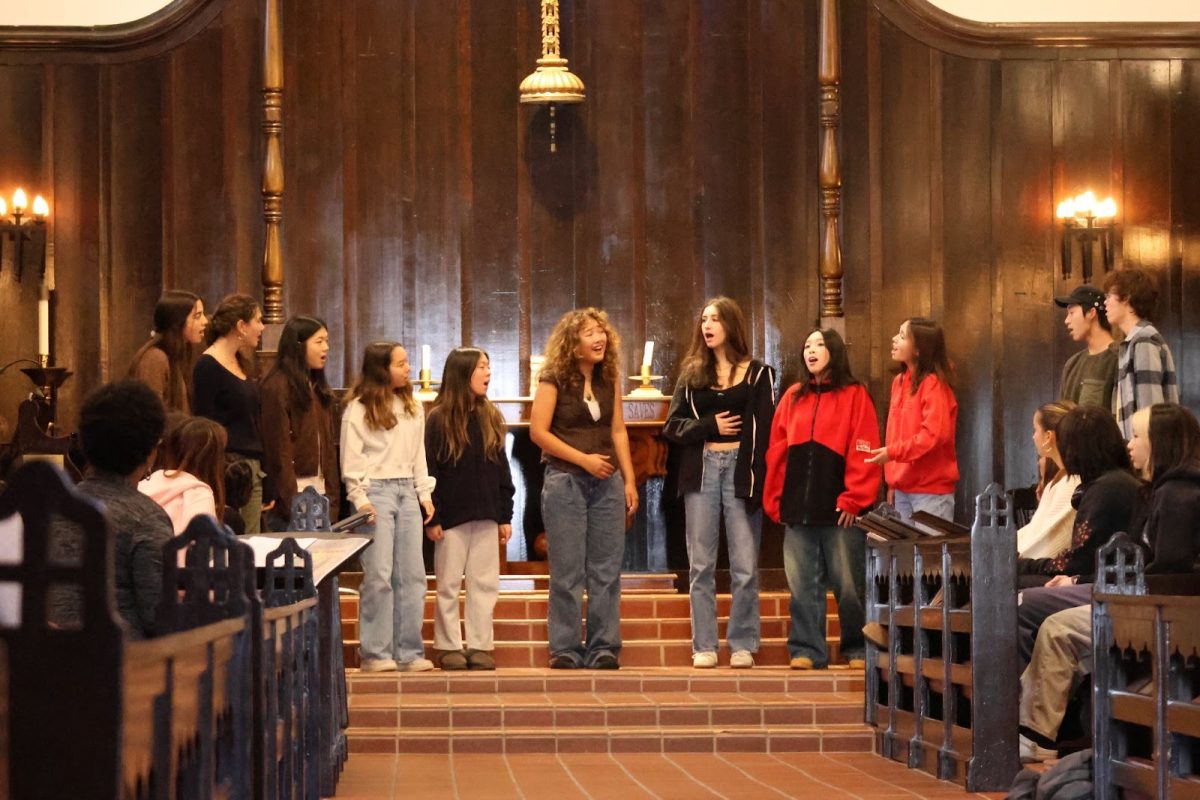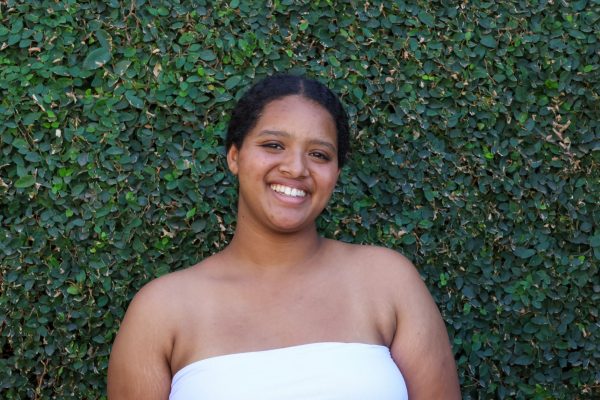During the pandemic, Collin Caras ’25 walked through his neighborhood with a friend, knocking door to door. The reason? They started a car washing company by washing family and friends’ cars, and were looking to expand. They offered services like hand waxing, clay barring, interior cleaning, and had a standard cleaning cost of $20. Caras said the profit made from his company was put into a brokerage account, which kickstarted his investment journey.
“After I started the car washing company, I started thinking more about investments,” Caras said. “Bitcoin was reaching over 60k and the Gamestop short squeeze was happening early to mid-2021. It marked a shift in investing culture, leading to my interest in the investment world.”
Investment Club co-leader Ryder Katz ’25 said he learned about the market through his own personal research and talking to his family.
“I’ve talked to my dad about his investments and how it works,” Katz said. “During COVID [COVID-19], I started to focus on [investing] more to actually understand what was happening. I put a little bit of my own money into the market and got to see how the market moved, how it works and what it feels like.”
Stocks are shares that are bought to represent ownership in a company. They are generally bought and sold electronically through stock exchanges, the two primary ones in the United States being the New York Stock Exchange (NYSE) and the National Association of Securities Dealers (NASDAQ), according to financial services company Charles Schwab.
Jett Jasper ’26 said that with the help of his parents, he chose to invest in Standard and Poor’s 500 (S&P 500), a stock market index that tracks the stock performance of 500 of the largest companies, for its stability and diversity.
“[S&P 500] is widely considered one of the safest investments you could make, and since it was my first time, my parents taught me how to be safe with my finances and put stocks into my savings account,” Jasper said.
Only a small percentage of high school students in the United States are actively investing in stocks. While 75% of teens aged 13-17 say investing is important to them, fewer than 1 in 4 (23%) have actually started investing, according to fidelity. 33.5% of students at this school own a share of stocks or bonds, according to a Chronicle poll. Angus Norden ’26 said students at the school have an advantage in investing due to access to knowledgeable teachers, financial connections and school resources.
“Last year, I would ask my math teacher, who’s also the Economics teacher, for advice on my stocks,” Norden said. “I know a lot of my friends have parents in the financial district, and they know a lot of people who are connected to finance. Coupled with the plentiful resources from our school as well, students here have a lot of resources to be able to succeed.”
The top 10% of U.S. households hold around 93% of the stock market wealth, according to Axios. 37.9% of students at the school have a parent who works in a finance, business, or economics field, according to a chronicle poll.
Interdisciplinary Studies and Independent Research Teacher Rob Levin said the biggest challenge for students from low-income backgrounds learning about investing is a lack of exposure to financial knowledge and inspiration.
“The main problem that kids in low-income housing face when trying to learn about investing is original inspiration,” Levin said. “If your dad is a finance guy, and does this as his living, your dinner table conversation is going to look a lot different from what a student whose parents work in a different field and don’t have the time or resources to teach you these skills.”
Norden, who currently owns stocks in Apple, Nvidia and Facebook said investing requires money you can afford to lose and that higher socioeconomic status makes it easier to invest and profit.
“You just need money to be able to put aside that you know you might lose,” Norden said. “Not everyone can afford that, so for people with less money, a huge factor for investing is knowing that you will have the chance to lose all of this money, so it can’t be too much that they put into a stock. You need to have enough money set aside and be at the right socioeconomic level to be able to put the money in. Most likely, the more money you put in, the more money you will make if your stocks do well. It’s a very rewarding process for the higher socioeconomic classes.”
Sophia Wong ’27 said patience is the most important skill to have when investing in stocks.
“Stocks is all about waiting and keeping your money in for long term, unless you’re a day trader,” Wong said. “If you really want to make money, stocks will just be about identifying certain trends and then waiting. The truth is stock trends are very volatile, but over time they tend to even out. To be a good investor you need to have a lot of patience.”
Robinhood is a commission-free stock trading and investing app. Other apps like Acorns, Fidelity Investments and public. com make investing widely accessible to people nationwide. What makes Robinhood so user-friendly is that it allows people to buy fractional shares, so if a stock costs $1,000 per share, one could invest $10 to own 1/100th of the share. Investment Club Co-Leader Will Rosen ’26 said anyone can invest through Robinhood, regardless of how much money they have.
“Nowadays, you can buy super small slices of shares of companies on things like an app called Robinhood,” Rosen said. “Even with a small amount of money, you can do the research and analyze a company, whether you’re putting in $1 or $100. If you approach investing in stocks from an analytical standpoint, you can get the same out of the process, no matter how much money you’re putting in.”
Other private schools such as Long Island Lutheran High School, offer specialized classes such as, “Introduction to the Stock Market,” an elective course where students receive simulated $100,000 accounts to invest in researched stocks, according to the school’s website. Financial literacy rates for young people globally are below 50%, according to World Economic Forum (weforum).
Wong is currently in the Wharton Global Competition, an investment challenge for high school students. In the competition, students work in teams of four to seven, guided by a teacher as their advisor, and have access to an online stock market simulator, according to the competition’s website. Wong said she decided to participate because she wanted to learn about investing in a fun, safe way.
“I had a friend who did it last year school, and she did pretty well,” Wong said. “She recommended it to me, and told me I should try it out. I also just wanted to learn more about investing, and this seems like a really fun and safe thing, since it’s all fake money. It seemed really cool to be able to use a real life simulator and see where the money would go, and later on take those lessons and apply them to real life.”
Caras, who competed last year, said the biggest challenge was following the strict guidelines of the competition.
“You can’t just invest into what you want,” Caras said. “In our case, it was Hillary, a made-up person, and the goal was that you were supposed to represent her. You were her investor and put the money into the market that followed her vision, which was oil. Finding a stock that both went along with her vision and that we agreed with and thought could make a profit was a meticulous process. My job was to figure out why we should invest in oil and what oil stocks we should invest in. During this time, there was a lot of geopolitical tension, so our vision was to primarily go into U.S.-owned oil companies, like XLE, which mainly holds Exxon and Chevron.”
The school has many options for kids who are interested in investing, such as Honors and Regular Economics, as well as Business: A Metacognitive Approach, or clubs such as HW Venture, Investment Club and Economics Club.
Investment Club started a speaker series this year. Katz said the speakers provide valuable insights into various fields, sharing their career journeys and offering advice for high schoolers on how to succeed in the investment world. Katz said he has hosted a diverse range of speakers in order to give students differing perspectives on success.
“We’ve been having speakers from multiple different fields, such as the Chief Executive Officer (CEO) of a wealth management fund, the CEO of an investment bank and we’ve got the Chief Investment Officer (CIO) of Cedars Sinai Hospital coming in after the break,” Katz said. “We talk about what their day-to-day looks like, how they got to their position of success and what we can do as high schoolers to get there as well.”
Rosen said the school’s resources have provided students with a lot of opportunities and valuable connections.
“We definitely are privileged, especially because of the resources and connections available on campus,” Rosen said. “Being able to interact with people like Mr. Levin, who not only knows of a lot of individuals he can connect us with but is also extremely knowledgeable himself, gives us a unique edge. We are lucky enough to have a leg up in terms of the information that we can gain from these people.”
Katz said students have a distinct advantage in the investment field due to the strong support system provided by the school’s resources.
“Harvard-Westlake students naturally have a greater support system in the investment field,” Katz said. “We have an investment club, and we have HW Works. They can all put us in touch with people to get more advice or research, which we shouldn’t take for granted. We have more support to gain the insight and information to be successful in investing.”

